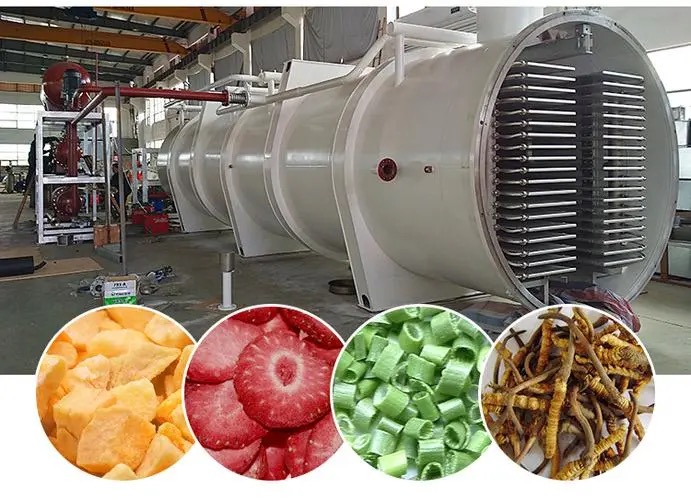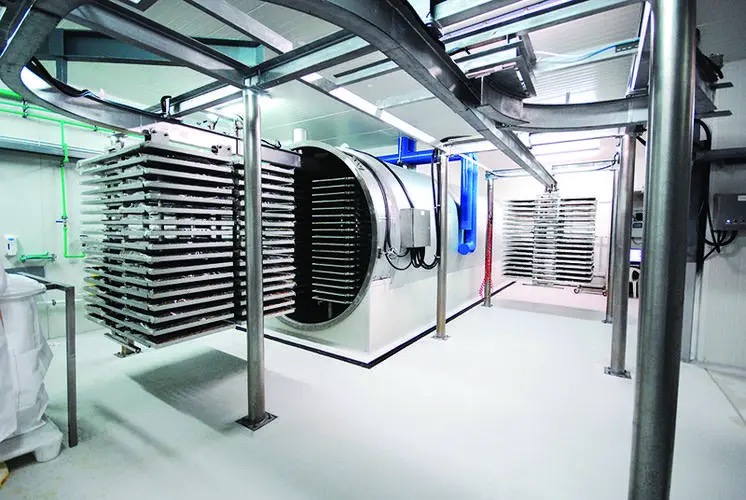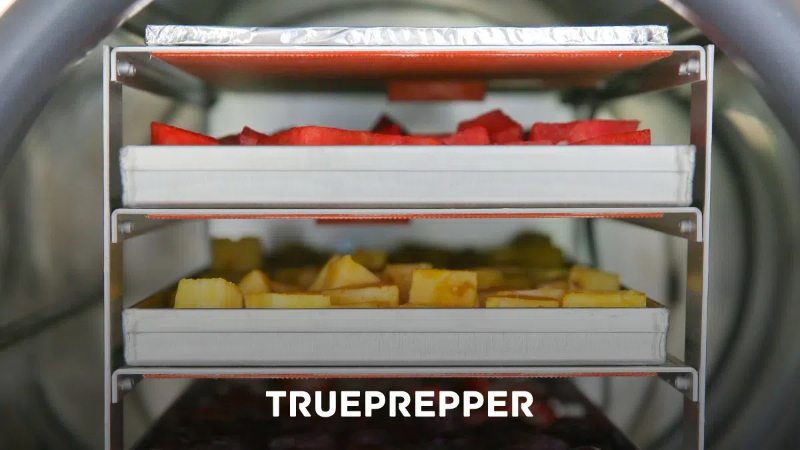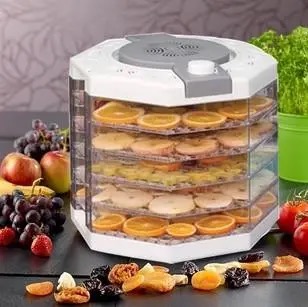
Content Menu
● Introduction to Home Freeze Drying
● What is Freeze Drying?
● The Rise of Home Freeze Dryers in Utah
● Harvest Right: Utah's Home Freeze Dryer Pioneer
>> Harvest Right Freeze Dryer Models
● The Freeze Drying Process at Home
● Benefits of Home Freeze Drying in Utah
>> Long-Term Food Storage
>> Nutritional Preservation
>> Taste and Texture
>> Versatility
● Cost Considerations for Home Freeze Dryers in Utah
● Comparing Home Freeze Drying to Other Preservation Methods
>> Freeze Drying vs. Dehydration
>> Freeze Drying vs. Canning
● Popular Foods to Freeze Dry in Utah
● Tips for Successful Home Freeze Drying in Utah
● The Future of Home Freeze Drying in Utah
● Conclusion
● Frequently Asked Questions
>> 1. How long does it take to freeze dry food at home?
>> 2. Can I freeze dry liquids?
>> 3. How do I rehydrate freeze-dried food?
>> 4. Is it safe to freeze dry raw meat?
>> 5. How much electricity does a home freeze dryer use?
Introduction to Home Freeze Drying
In recent years, Utah has seen a surge in interest for home freeze dried food machines. This trend is not surprising, given the state's strong culture of self-reliance and emergency preparedness. Home freeze drying offers a superior method of food preservation that maintains nutritional value, flavor, and texture far better than traditional methods like canning or dehydrating.
What is Freeze Drying?
Freeze drying, also known as lyophilization, is a process that removes moisture from food while preserving its structure and nutritional content. The process involves freezing the food, then creating a vacuum environment where the frozen water sublimates directly from a solid to a gas, bypassing the liquid phase.
The Rise of Home Freeze Dryers in Utah
Utah has become a hub for home freeze drying, with many residents embracing this technology for various reasons:
1. Emergency Preparedness: Utah's culture emphasizes being prepared for emergencies, and freeze-dried food is an excellent option for long-term storage.
2. Outdoor Recreation: With Utah's abundant natural beauty, many residents enjoy camping, hiking, and other outdoor activities. Freeze-dried meals are lightweight and easy to pack.
3. Garden Surplus: Many Utahns maintain home gardens, and freeze drying offers an excellent way to preserve excess produce.
4. Healthy Eating: Freeze-dried foods retain most of their nutritional value, appealing to health-conscious consumers.

Harvest Right: Utah's Home Freeze Dryer Pioneer
When discussing home freeze dried food machines in Utah, it's impossible not to mention Harvest Right. This Utah-based company has revolutionized the industry by making freeze dryers accessible to home users.
Harvest Right Freeze Dryer Models
Harvest Right offers several models to suit different needs:
1. Small Freeze Dryer
2. Medium Freeze Dryer
3. Large Freeze Dryer
4. Scientific Freeze Dryer
Each model varies in capacity and features, allowing Utah residents to choose the best fit for their household size and freeze drying needs.
The Freeze Drying Process at Home
Using a home freeze dried food machine in Utah is a straightforward process:
1. Preparation: Clean and cut food into appropriate sizes.
2. Loading: Arrange food on the freeze dryer trays.
3. Freezing: The machine rapidly freezes the food to very low temperatures.
4. Primary Drying: A vacuum is created, and heat is slowly applied to sublimate the frozen water.
5. Secondary Drying: Additional heat removes any remaining bound water molecules.
6. Completion: The freeze dryer signals when the process is complete.
7. Storage: Package the freeze-dried food in airtight containers or mylar bags with oxygen absorbers.
Benefits of Home Freeze Drying in Utah
Long-Term Food Storage
One of the primary reasons Utah residents invest in home freeze dried food machines is for long-term food storage. Properly packaged freeze-dried foods can last up to 25 years, making them ideal for emergency preparedness kits.
Nutritional Preservation
Unlike other preservation methods, freeze drying retains up to 97% of the food's nutritional value. This is particularly important for health-conscious Utahns who want to ensure they're consuming nutrient-dense foods even during emergencies.
Taste and Texture
Freeze-dried foods maintain their original flavor and reconstitute to nearly the same texture as fresh foods. This makes them far more palatable than many other preserved food options.
Versatility
From fruits and vegetables to complete meals and even ice cream, almost any food can be freeze-dried at home. This versatility allows Utah families to preserve a wide variety of foods to suit their tastes and dietary needs.
Cost Considerations for Home Freeze Dryers in Utah
While the initial investment in a home freeze dried food machine in Utah can be significant, many users find it cost-effective in the long run. Factors to consider include:
1. Machine Cost: Prices for home freeze dryers typically range from $2,000 to $5,000.
2. Energy Consumption: Freeze dryers use electricity, which will impact your utility bills.
3. Supplies: You'll need mylar bags, oxygen absorbers, and possibly additional trays.
4. Food Costs: Buying food in bulk when it's in season can lead to significant savings.

Comparing Home Freeze Drying to Other Preservation Methods
Freeze Drying vs. Dehydration
While both methods remove moisture from food, freeze drying is superior in many ways:
1. Nutrient Retention: Freeze-dried foods retain more nutrients than dehydrated foods.
2. Texture: Freeze-dried foods rehydrate to a texture closer to fresh than dehydrated foods.
3. Shelf Life: Freeze-dried foods typically last longer than dehydrated foods.
Freeze Drying vs. Canning
Canning is a traditional preservation method, but freeze drying offers several advantages:
1. Weight: Freeze-dried foods are much lighter, making them easier to store and transport.
2. Nutritional Value: Freeze drying preserves more nutrients than canning.
3. Variety: More types of food can be preserved through freeze drying than canning.
Popular Foods to Freeze Dry in Utah
Utah residents use their home freeze dried food machines for a variety of foods:
1. Fruits: Strawberries, apples, peaches, and berries are popular choices.
2. Vegetables: Peas, corn, carrots, and green beans freeze dry well.
3. Meats: Chicken, beef, and turkey can be freeze-dried for use in meals.
4. Dairy: Cheese and even ice cream can be successfully freeze-dried.
5. Complete Meals: Soups, stews, and casseroles can be preserved for quick, easy meals.
Tips for Successful Home Freeze Drying in Utah
1. Pre-freeze high-moisture foods to reduce freeze drying time.
2. Cut foods into uniform sizes for even drying.
3. Leave space between food pieces on the trays for efficient air circulation.
4. Regularly clean and maintain your freeze dryer to ensure optimal performance.
5. Store freeze-dried foods in a cool, dry place away from direct sunlight.
The Future of Home Freeze Drying in Utah
As more Utah residents discover the benefits of home freeze drying, we can expect to see continued growth in this sector. Potential future developments include:
1. More energy-efficient models
2. Increased automation in the freeze drying process
3. Integration with smart home technology
4. Development of specialized freeze drying recipes and techniques
Conclusion
Home freeze dried food machines in Utah have transformed the way many residents approach food preservation, emergency preparedness, and even everyday meal planning. While the initial investment may be significant, the long-term benefits in terms of food quality, nutrition, and storage life make it an attractive option for many Utah households.
Whether you're an outdoor enthusiast looking for lightweight, nutritious meals for your adventures, a gardener seeking to preserve your harvest, or a family focused on emergency preparedness, a home freeze dryer could be a valuable addition to your Utah home.

Frequently Asked Questions
1. How long does it take to freeze dry food at home?
The process typically takes between 20 to 40 hours, depending on the type and quantity of food being freeze-dried. Foods with higher moisture content will take longer.
2. Can I freeze dry liquids?
Yes, liquids can be freeze-dried. However, they should be pre-frozen before being placed in the freeze dryer to prevent spills and ensure even drying.
3. How do I rehydrate freeze-dried food?
Most freeze-dried foods can be rehydrated by adding warm or hot water. The amount of water and time needed will vary depending on the food item.
4. Is it safe to freeze dry raw meat?
Yes, it is safe to freeze dry raw meat. However, it's important to handle raw meat safely to prevent contamination, and to store it properly after freeze drying.
5. How much electricity does a home freeze dryer use?
On average, a home freeze dryer uses about 1-2 kWh of electricity per hour of operation. The exact amount will depend on the model and size of the machine.












